How To Maximize Budgets As A Film Producer
Being a producer means putting together a project and seeing that project through to completion. It boils down to hiring the director to execute their vision, and then supporting the director along the way. Whether you’re producing a short film, feature film, or corporate video, the producer really has one job: complete the film under budget and turn a profit.
We’ve already written about how to become a producer in the first place as well as gone over the different types of producers. In this post, you’ll learn how to become a good producer to make sure that your film is successful and makes money.
If you need funding so that you actually have something to produce, submit your one-sentence pitch to our film funding contests for a chance to receive up to $10,000 in funding plus additional prizes to make your film a reality.
You can also subscribe to our updates for weekly producing and filmmaking tips.
What It Takes To Be A Great Film Producer
Read on for strategies on not just how to become a film producer and how to produce a movie, but how to be a good one.
Read and Break Down Scripts
If you’re not a seasoned filmmaker or executive producer, you’ll want to read as many scripts as you can. This will give you a background in short film structure, and breaking down the script into a film budget breakdown will give you insight into what a movie producer does, how to translate a script into a film crew list, and what the role of an executive producer is.
It will also help hone your taste for what a good script looks and reads like. After going through a myriad of scripts, you’ll be able to identify a weak or amateur script when you come across one.
Independent film producers and independent film companies need to be able to identify good material and what makes a good story. If you’re reading a script and there’s no whitespace, the formatting is off, that act structure doesn’t make sense, and the story doesn’t grab your attention, it likely won’t make back the production costs, get into a top film festival, or generate a lot of money. After all, being a producer is about being at the center of the business of film.
Develop Interesting Material

Instead of finding scripts that have already been written, develop your own material. You don’t need to be a screenwriter, director, or even consider yourself a “creative,” but you do need to be able to identify what makes a good story. (Hint: that’s conflict, and you can read more about it from a short film by Don Fanelli that we funded).
In many biographies from producers that we’ve read, a common strategy—at least years ago—was to go to a used bookstore and pick a book off the shelf that had a captivating story. The producer would read the book, and if they liked it, they would get in contact with the author and/or publisher to “option” the rights to the book. They would then commission a screenwriter to write the script adaption and go from there.
So you don’t need to be able to develop material out of thin air. While that’s great, and audiences are always craving new content, adapting an already existing story can be even more successful, and it may already come with a built-in audience. This can be a great way to create an independent film and make money as a film producer.
Create an Accurate Budget
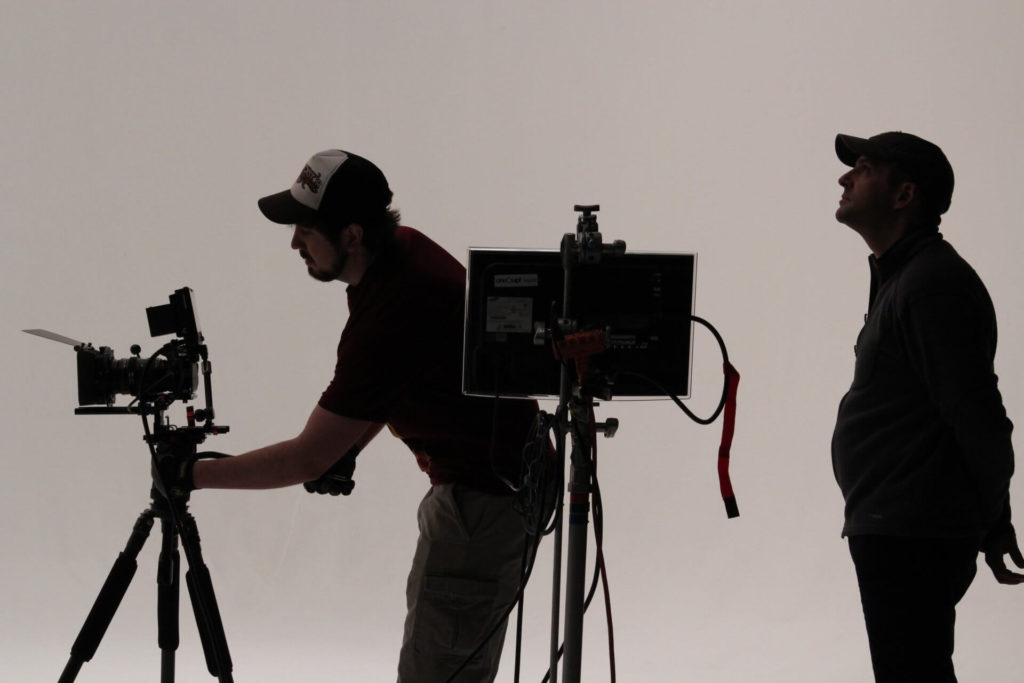
As we said earlier, you need to come in under budget. This is largely up to the director finishing their days on time and not requiring reshoots, but as a producer, you hired the director, so the responsibility also falls on you.
There are no qualifications you need to be a film producer, but having a background in business, finance, or accounting can definitely help when it comes to creating and managing film budgets, as you’ll be dealing with a lot of spreadsheets, contracts, corporate structuring, and intellectual property. Your crew members will likely have no idea about any of this.
Independent producers establish rates and create budgets for indie films, and it’s their job to forecast accurate expenses associated with the production.
Secure Funding
If you’re a producer at an agency or big studio, you likely won’t have to deal with fundraising. But independent film producers face a different challenge. To secure funding, you’ll need to convince stakeholders that your project is worth putting money into.
With short films, this is extremely difficult to do, as in most cases, short films do not make money. They’re necessary, as they serve as calling cards and examples of work for filmmakers, but they’re not designed to turn a profit. So serious investors don’t invest in them.
Most crowdfunding campaigns fail, screenwriting contests require a script and can be expensive, and grant applications take days to complete. With The Film Fund, you can inexpensively pitch a short with one sentence in a matter of seconds, and you don’t even have to worry about finding a producer for your film to raise the film financing.
Hire the Right Talent
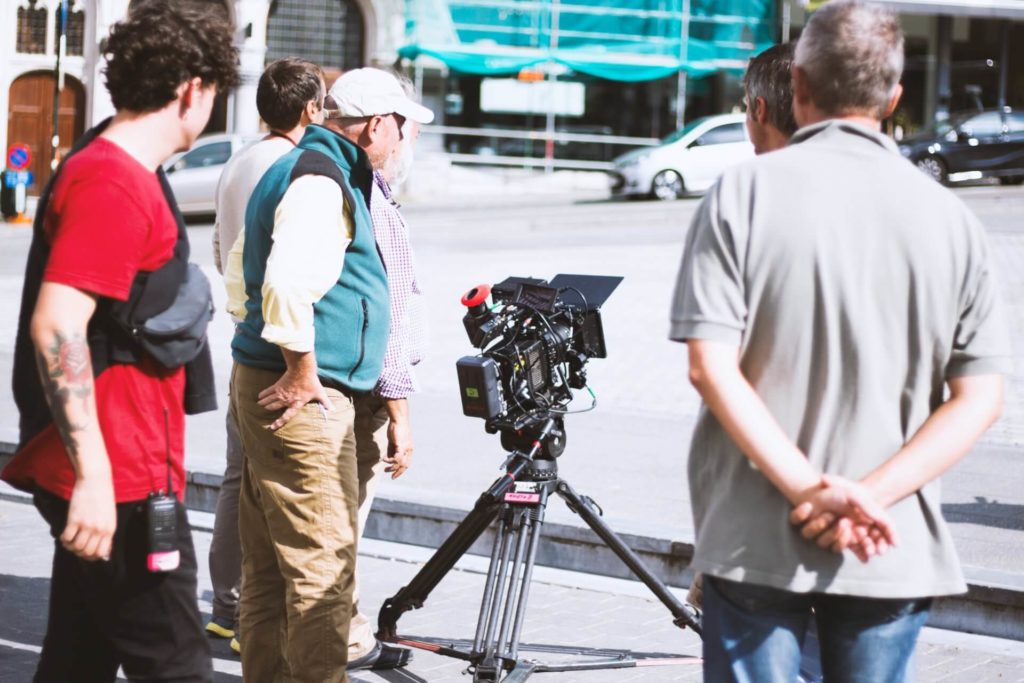
The most important thing in becoming a successful producer is to hire the right above-the-line talent, meaning your screenwriter, director, and principal cast. Yes, as a producer, you will be involved in casting, and a good producer will work with the director to ensure the actors for the primary roles in the film are a good fit.
Not only will a solid lineup of cast, writers, and directors make the film critically viable, but it will help attach more proven talent and financing to the project. People want to work on projects that have names and established traction.
Different Kinds of Producers
Executive Producer

The executive producer is typically the person who puts up the money for a short film project. For example, at The Film Fund, we reserve an Executive Producer credit for the project manager of the winning short film since we’re funding it.
The role of the executive producer is to have a hand in the pre-production process. Often their input is appreciated because they are the ones financing the project.
So, it helps to find executive filmmakers who will actually take an interest in the project. They often will, though, as it’s their money at stake! So what is the difference between a producer and an executive producer?
Producer
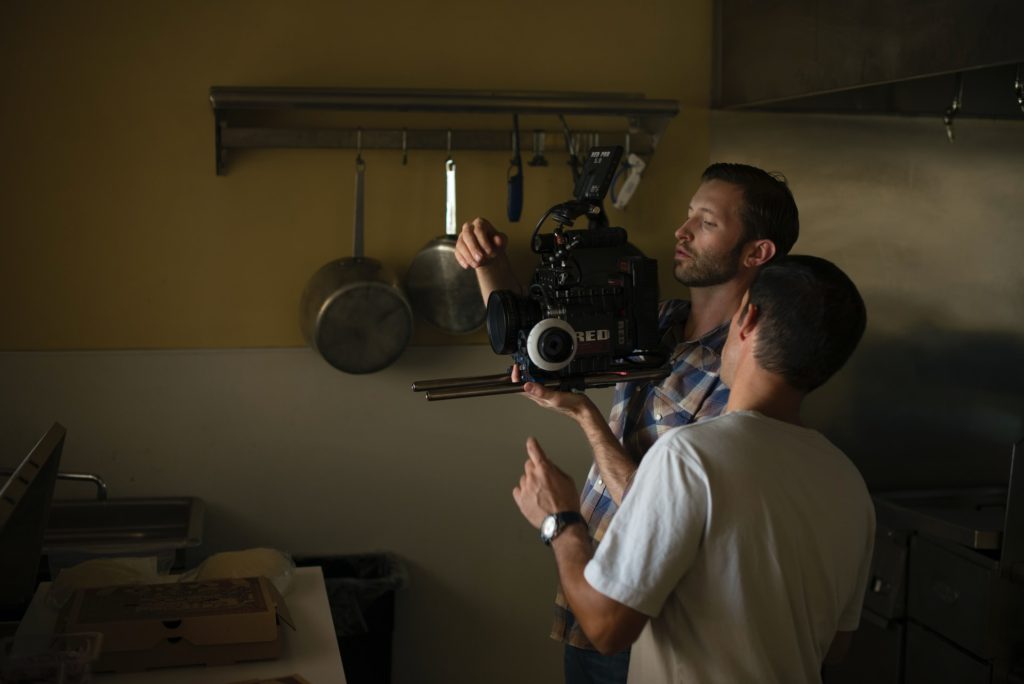
In the executive producer vs producer break down the key difference is usually funding. Often the producer does not fund the film in the same way an executive might.
According to Studio Binder, their film producer definition is “a person that initiates, coordinates, supervises and manages the creation and production of movies, television shows, web series, and commercial videos, amongst other productions.
A producer is involved throughout all phases of production from inception to completion, including coordination, supervision, and control of finances, talent, crafts.”
That’s a pretty broad definition, and we love it because being a filmmaker entails a myriad of job responsibilities! When you’re an independent filmmaker you’ll be wearing more hats than can fit on your head.
So, in short, the difference between a filmmaker and an executive is that the filmmaker will usually be more hands-on in order to get things done.
Television Producer
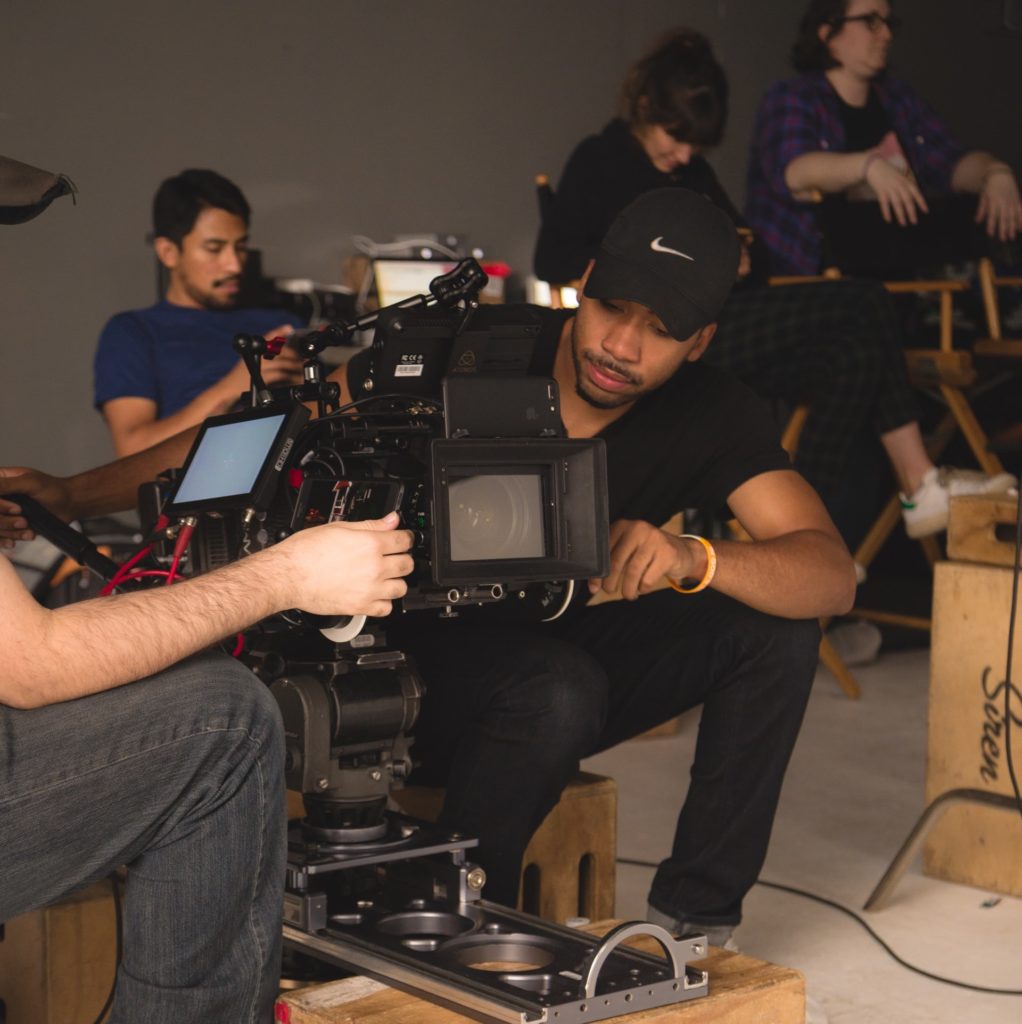
What TV producers do is slightly different from the jobs of the independent film company’s producers.
Television production is a bit of a different beast than film production. In television, creating is all about the writing, so the television creator is typically the head writer of the show responsible for the story arc.
The head writer is also often the showrunner, the point person who drives the show forward.
How to Become a Producer
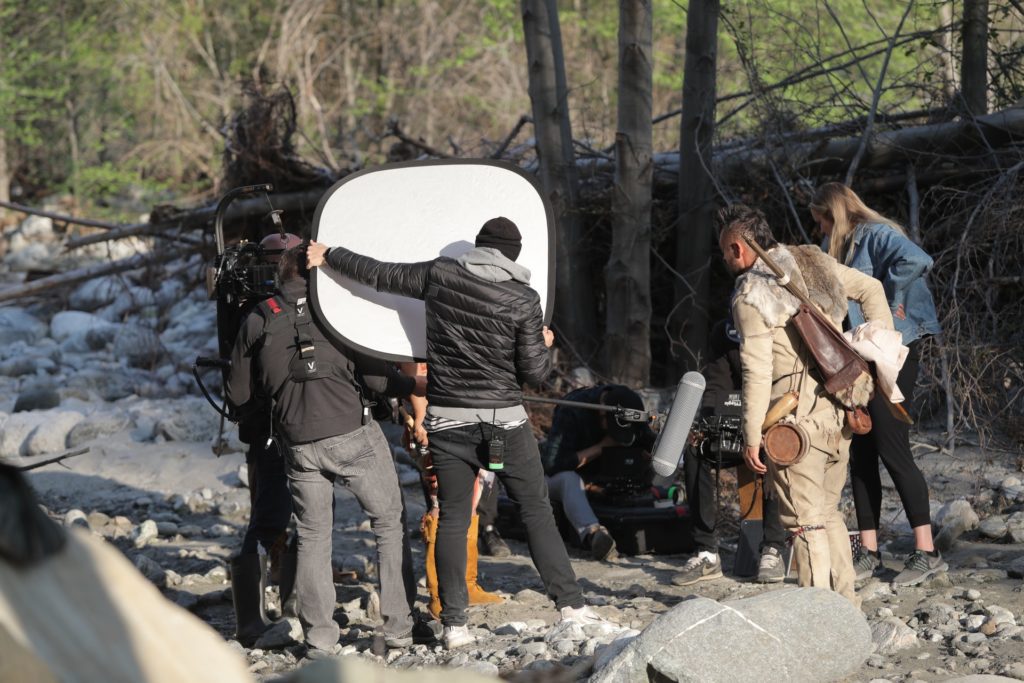
Before you can begin making money as a creator you have to become a producer. The best way to do this is to be intentional with your jobs. If you want to become a movie producer start working in pre-production for film.
To become an independent film producer you have to have the skills to produce a movie. By being around filmmakers, helping with pre-production, and offering your own ideas you’ll begin to understand how to create an independent film and then you can do it yourself. We have an entire post that shows you how to become a producer.
If you want to become an executive producer you’ll need the same skills and the capital to back it up. As we discussed the executive is usually the one funding the project so if that’s your dream job you’ll need the funds. If you’re looking to get a project funded we can help! Check out our funding opportunities.
The same thing applies to becoming a TV producer. If you want to be a television creator you should be around television production and work with other creators.
How to Make Money
Selling Assets
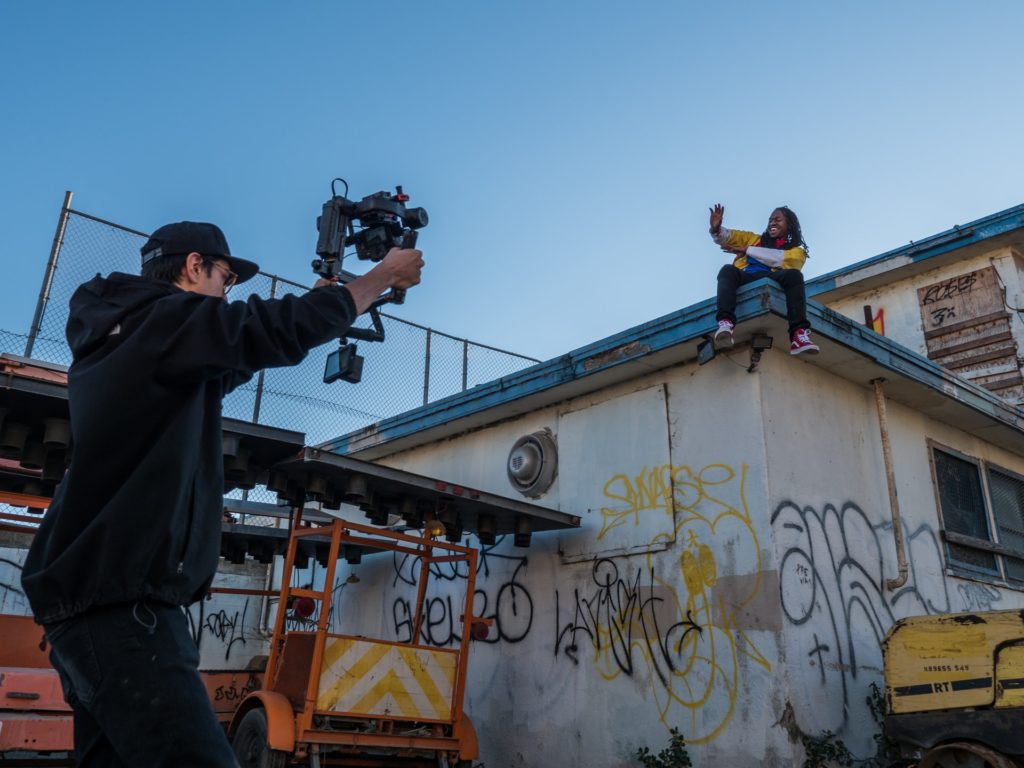
Some easy steps you can take at the beginning of your career to make money as a filmmaker is to sell assets. These can range from stock footage to online courses or sound effects.
There are lots of websites and services that buy stock footage and sound effects and then license them to filmmakers who need them. Like Sonniss or Adobe Stock Images. If you can be the creator who provides that content then you can make money as a filmmaker.
Drone Piloting

Drone footage has become increasingly popular and in higher and higher demand. If you can get your drone pilot license then you can sell your skills or footage to productions or other filmmakers.
Flying a drone also doesn’t require a full film crew list, it’s content you can make by yourself. Drone footage doesn’t need any special lighting techniques in films, like low key lighting in film or a loop lighting setup.
So once you’ve purchased the drone you can start filming and making back your money. Having a drone license and or a drone also makes you a valuable asset for film productions. You might get hired just because you know how to fly a drone, and those gigs can make you more money as a filmmaker too.
Work Various Production Jobs

Of course, ultimately you want to be a producer, but sometimes you have to work other jobs on sets, like being an AC or a gaffer. Working jobs throughout the entire film crew hierarchy will help you gain connections with other filmmakers. It also doesn’t hurt that you’ll get paid for these other jobs, too.
And it will give you an understanding of every job on set. This will make you a better filmmaker because you’ll know the job of every person you hire for your own projects.
Product Placement
Once you get to be a producer for your film you can start making decisions about movie budget breakdowns. Sometimes you can even make money while you’re making a movie through product placement.
So you’ve raised as much money as you can for your film budget breakdown, but the financial backing of a company like Mcdonalds or Subway could really help take your project to the next level. But if you’re just starting out big brands might be hard to get on your project. But reaching out to smaller, local businesses can be a great way for you to make money and for that brand to get some good exposure.
As a creator, you’ll make the decision about which product placement opportunities feel right for your project to make the most money.
Distributors
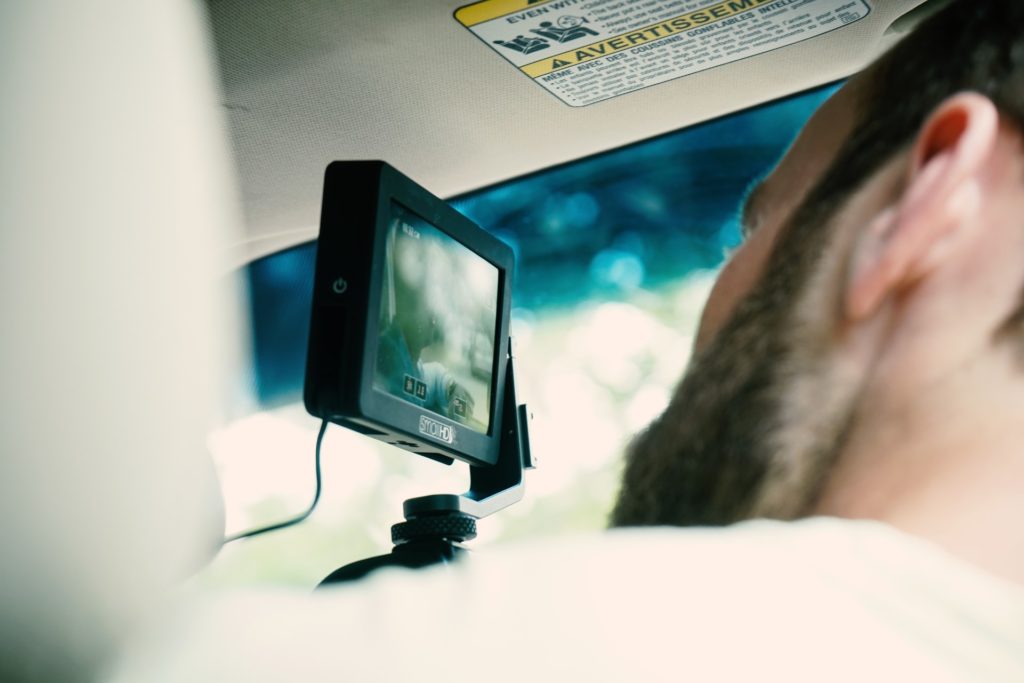
The best but hardest way to make money in filmmaking is to produce a feature film and sell it to a distributor. When people think of being a movie producer this is often what they envision.
If you’re just starting out as a filmmaker and don’t think you’ll make it to the level of feature films, don’t get discouraged. No one starts out selling features to distributors. If you begin with the other steps we outlined for making money in producing you’ll work your way up to feature films.
Maximize Your Budget As A Film Producer
It comes down to who you hire. The questions you ask in the interview process will show you how versatile and flexible they can be both on set and in pre-production. You want people who genuinely care about the production and not just their paycheck.
Combine Production Department Heads
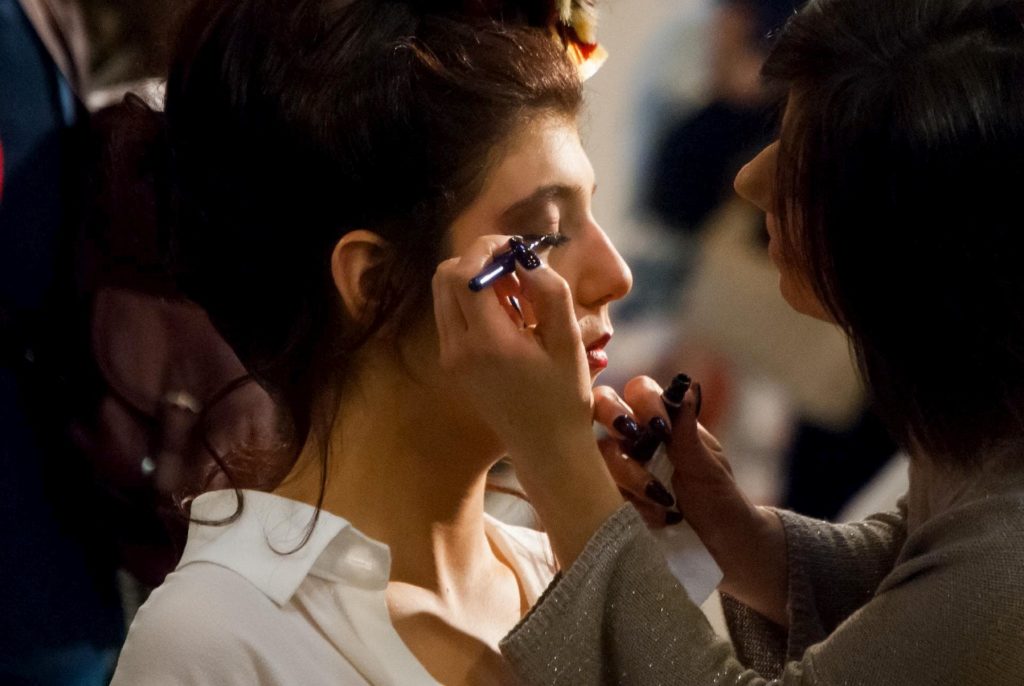
One thing you can do to save time and money is to combine production heads on your short film. If you can find crew members who are multi-faceted (recruiting from the theatre world can help with this), you’ll be able to bundle their services into one rate. On one of our founder’s short films, Thomas Verdi hired someone who could do both Hair and Makeup in addition to Costume Design. Her title was a bit of a mouthful—Hair and Makeup and Costume Designer—but he saved a significant amount in the budget by doing this. Just be careful about spreading people too thin. They may be talented, but you don’t want to overtax them. He almost had her do production design, too, but was advised against it!
You could combine assistant directors with the responsibilities of crafty, have set designers also do costume design and serve as the art director, have the director of photography double as his own camera operator and key grip, have the boom operator do DIT, and more. Whatever you think makes sense for your project.
If they’re more obsessed with film crew hierarchy than helping you produce or direct an amazing film, they’re likely not going to be a good fit for your low-budget short film. Always keep this in mind as an independent producer when putting together your movie budget breakdown: you can download our free film budget template here.
Use Your Own Vehicles

Commercially successful independent film producers and independent filmmakers are known for their ability to be scrappy and turn around projects on time and under budget. Instead of doing everything “by the book,” they maximize the resources to which they have access. Similar to combining production staff, you can also combine production vehicles (assuming you’re not dealing with transportation unions such as the Teamsters on your production).
Instead of accepting the fact that a cinematographer says you’ll need to rent a truck for all of the gear, you could invest in a truck or SUV (or borrow one from a friend or family member) so you won’t need to rent a box truck or your crew member’s van when you need to transport gear, props, and set dressings between locations.
If you discuss these logistics with your department heads up front, telling them that the project is low-budget and demonstrate your passion for it, they’ll likely be okay with this, and they might even appreciate the help when it comes to hauling hear. Always consider all of the production costs, including gas and tolls. Not only will you save on rental costs for a truck, but there will be less gas and tolls to reimburse.
Encourage Carpooling
In the same vein as using your own vehicles to transport props and equipment, you can encourage your cast and crew to carpool if they’ll be traveling from the same place. Again, this is something you’ll want to discuss in the hiring and casting process when discussing logistics. If any members of your production balk at this idea, even after you demonstrate your passion and how important it is to the low-budget film budget breakdown. they may not be the right people for your film.
Have the Director Edit the Film
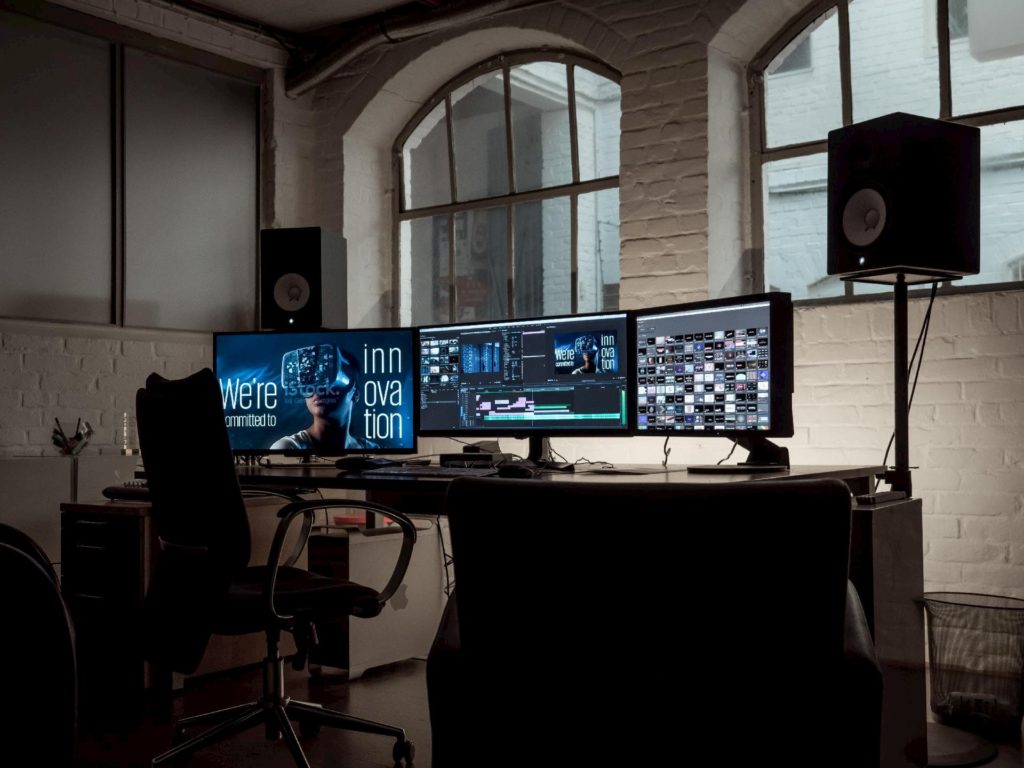
Your below-the-line crew shouldn’t be the only people involved in the film whose talents can be combined. With the exception of executing complex VFX work in post-production, in our view, every director should be able to cut together a rough cut of their film, if not the entire thing. Directors need t have a firm understanding of their script’s act structure, and they should be envisioning the final edit and the editing process during the actual shoot on set, so also editing the film should be a no-brainer. Of course, directors don’t always need to edit if hiring a professional editor will improve the project, but this is one significant way to save money in post-production.
The Coen brothers always edit their own films. At the very least, have your director assemble a rough cut or even just a stringout of footage (meaning pulling “selects”—the best takes—to the timeline in order) before hiring a professional editor. If your editor is going to charge by the hour or is evaluating the project before setting a flat rate, this will help tremendously rather than giving them an entire dump of the footage.
Compose Your Own Score, or Find a Sound Editor Who Can
Again, don’t hire additional crew—even post-production crew—if you don’t have to. Sound design, score, and good editing are crucial to a project’s success, but if you can find someone who can do more than one of these skills well, you could save thousands of dollars in your post-production budget. This is what a movie producer does. They get things done. When you hire one person to do multiple jobs, there’s a lot more room to bundle services and negotiate their contract.
If you’re a musical person, you could even try composing your own score. Taking an online scoring class and purchasing a synthesizer will be less expensive than continuing to hire post-production crew as your career grows and you produce more and more short films.
In addition to combining crew or producing your own music, you can use free royalty-free music and sound effects from websites such as mobygratis. Just be sure to credit the sources appropriately according the listed Creative Commons license.
While these tips will help when it comes to stretching your budget, you’ll still require a budget in the first place. For a chance to receive up to $10,000 and other prizes to make your short film, submit to our one-sentence film funding opportunities today.
I am Jonathan Trent Herman. Producer Of. Straight Out Of Compton.
Welcome!
(Hey ) Tell me what you have to do get excutive producer beside raekwon’s studios
Hi there! This post from our Learn page may be useful, as it explains the different kinds of producer roles that exist in the industry: https://www.thefilmfund.co/19-different-types-of-film-and-agency-producers-from-executive-producer-to-line-producer/